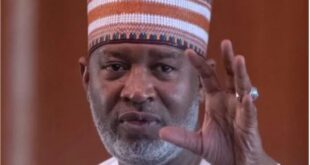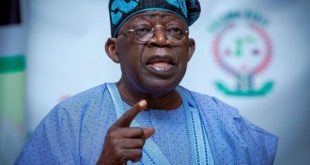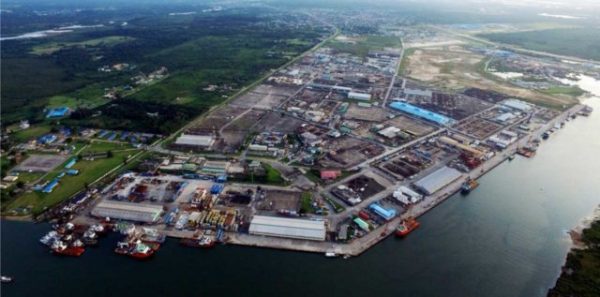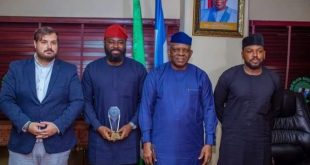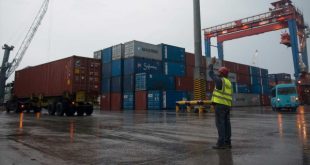
- As AfCFTA awaits protocols, Nigeria Customs to invest in export procedures
- Customs expects tumble in revenue as import slides
Plans are underway to phase out the ECOWAS Trade Liberalization Scheme (ETLS) as soon as the African Continental Free Trade Agreement (AfCFTA) takes off with the development of protocols which are yet to be done even as the Nigeria Customs Service(NCS) has vowed to allocate resources to enhance export procedures and ensure that exporters can operate in a streamlined environment that ultimately benefits the government through increased foreign exchange earnings.
Calling for the creation of an African free trade portal also, the NCS which has acknowledged that effective continental free trade would tumble the import revenue profile of Customs said it is committed to trade facilitation in the new dispensation while making near comprehensive recommendations that could help aid the paradigm shift for collective economic growth amongst member countries of the trade agreement.

The Executive Secretary of the National Action Committee on AfCFTA, Dr. Olusegun Awolowo confirmed the plans to substitute ETLS with AfCFTA in a chat with MMS Plus at the just concluded 43rd Annual Council of the Port Management Association of West and Central Africa(PMAWCA) in Lagos, Nigeria.
He said, “You are going to see many of these sub-regional agreements being substituted by the AfCFTA when all the protocols are ready. The AfCFTA protocols are not ready, we are still working on them, once they are ready, they will substitute many of these regional agreements. It’s just a matter of time. If you are still exporting within West Africa, you can apply the ETLS, but AfCFTA will now take you out of your zone”.

ETLS is a trade instrument aimed at encouraging duty free trade among ECOWAS member states.

The scheme offers unhindered market access to the fifteen member countries and promotes economic relations within the sub-region. Founded in 1979, at that time it covered only agricultural products and handmade crafts. But in 1990, it was extended to industrial products with protocols established.
It is surprising to many trade observers and analysts that ETLS has not been deemed fit for a comprehensive review despite its obvious lapses in the prevailing borderless trade across many regions.
Speaking during a panel session entitled:”The Role of Ports in AfCFTA, Awolowo posited,“The African Continental Free Trade Agreement is the biggest thing the African Union and African leaders have come up with lately in the African continent.
“The market of 1.2 billion people has a combined Gross Domestic Product,GDP of $3 trillion and what it means is zero tariff on imports from Africans. So Customs should have this in mind that revenue is going to fall short when we start implementation of AfCFTA, because African countries are not going to be paying duty again. So that’s why trade facilitation process is very important for the Customs service. We are going to have borderless trade, through e-commerce and main commerce.
He said, “The first speaker gave us a background of African trade and told us that intra-African trade is about 16% of the world trade. It is the lowest trading block in the world yet it is now the biggest. AfCFTA is bigger than World Trade Organisation,WTO by membership. Also the Afrexim bank is introducing the pan- African payment and settlement system that will allow us to pay for goods in our own currency, whatever we import.
“Let’s see what the state of African trade and maritime transport demand. According to UNECA, the maritime trade is projected to rise from 58 billion metric tons to 136 billion metric tons.
“The fastest and cheapest way of moving out goods is still by sea and when you trace it on the map, you will see how blessed Africa is. You can just have a shipping line that goes from Morocco down to South Africa, it passes up through Somalia and up to Tunisia and gets to Morocco again. This shipping line has been working and picking up things and that’s why we need this port efficiency.
“According to the World Bank’s container port performance index, Djibouti is number one in Africa and 26th in the world. We also have about five West African countries in the list, this means we need to buckle up.
He commended the Federal Government for carving out the marine and blue economy ministry, saying it comprises maritime resources; fisheries, agriculture, maritime transport and others,that play a vital role on the overall development of African nations.
He further observed that AfCFTA presents a good opportunity to harness and leverage the vast potentials in the blue economy, the ports as well as other vital sectors. AfCFTA can further boost the blue economy by promoting sustainable practices that encourage sustainable fishing, maritime resource management, etc.
He called on the governments of the West and Central Africa to investing more in port infrastructure, adding particularly, Nigeria has to invest in port development.
“We can also move forward in skills and knowledge transfer, that’s where we can get our youths to participate, invest more in education and training programme to equip the local work force with necessary skills and expertise.
He made recommendations for repositioning the West and Central African as a hub, reiterating, “We must invest in infrastructure. We have seen what we have in Lekki port and we are proud that it is in Nigeria. We must please rise to this, including modernizing our terminals.
“We must work on harmonization of regulation and we must encourage closer collaboration between West and Central African countries to align regulations and standards across regions to minimize non-trade barriers, ensuring a consistent and smooth operational environment for business in the maritime sector. Collaborative partnerships is also very important, we must improve in relationship not only within the port.
Awolowo made reference to Djibouti as a case study, because it is ranked as the country with the most efficient port in Africa as well as 26th in the world, because they launched what is called Port Community System (PCS). It connects all the stakeholders, ports, shipping lines, forwarders, customs, to provide a 360 load of cargo and documents for operators.
“So we must learn from Djibouti and repeat this all over Africa. AfCFTA presents an opportunity for African ports and maritime sector, we must learn to tap from the blue economy potentials, the framework and achievements and turn West and Central ports to regional ports. By facing these challenges, maximizing this opportunity, this vision will become a reality,” He added.
In his presentation at the panel session, the Comptroller General of Customs(CGC) Adewale Adeniyi stated that the objectives of African continental free trade areas present platform for African economic transformation raging from the promotion of intra -African trade to sustainable economic growth.
He said it resonates profoundly with the eight point agenda championed by the administration of president Bola Ahmed Tinubu, an agenda aspired to ensure food security and end poverty, foster economic growth, create jobs, provides access to capital, ensure security, improve ease of doing business, uphold the rule of law and combat corruption.
These objectives, the CGC added, outlined in the policy advisory council document, serves as a road map towards a brighter future for Nigeria. I’m indeed pleased to inform you that customs has taken proactive steps to outline its activities with these aspiration, especially the context of trade facilitation and ports.
“Notably, our initiative including transforming Nigeria into Africa’s most efficient trading nation, addressing the long standing issue of port congestion and enforcing the presidential directive of the 48hours clearance of goods at seaport in accordance to executive orders 001.
“Furthermore, we are defining performance measure for key government agencies to emphasize trade facilitation, implementing the national single window trading platform and launching a comprehensive transformational program to support export development.
“The establishment of ministry in charge of blue economy and marine by the current administration signifies its strategic move to unlock the vast potentials in maritime sector and channel it towards driving our national economic prosperity. This is not only in line to harness the wealth of opportunity in trade but also align perfectly by dedication to achieving objectives of the continental free trade.
“To serve you a reminder, this era of increased collaboration and inter-dependence, customs and maritime industry must work hard to ensure the overall success of this initiative.
He highlighted the implications of free trade areas to customs and the maritime industry, saying AfCFTA will prompt the need to shift rule of origin control from import side to export side, verification of origin status before export operations, will enhance reliability for business and customs while ensuring that only qualified goods participates in the agreement.
According to him, AfCFTA will strike separation of certification from regular procedure, certification and associated verification should now occur before export clearance. Streamlining processes and ensuring that only eligible good receives necessary documentations.
He continued,”The initiative is big enough to expect the creation of an African free trade portal that should serve as a central source of information for tariffs and other certification. This portal will be crucial in providing information on customs, the maritime industry and traders. The free trade area is poised to usher in significant changes that will have profound impact on customs operations.
He said, “While this shift is poised to foster export, it may lead to a trade up in terms of lower revenue from the import side. Port preference favouring the most efficient and infrastructurally sound ports may lead to lower import values and consequently reduced revenue for customs.
Introduction of advanced payment system which represents a notable stride while aligning our operations with the global best practices in line with recommendation of WTO/TFA agreement. Finally, the inauguration of a steering committee for implementation of AEO for compliance traders with a clear focus on transitioning from the existing concept to the new AEO concept.
We have a number of administrative collaboration which talks about the various collaboration we have been member of in international community particularly the World Customs Organisation, the Japanese Association for Cooperation and Custom Administration of Japan. We are making plans to build a custom laboratory in 2024, we will start the adoption of geo-spatial intelligence in our enforcement unit and all our stakeholders, the trade facilitation chain, we hope to conduct a time release study to actually determine how long it takes to clear goods from our port.
He enumerated the number of collaborations NCS has institutions and countries for efficiency, he noted,”We are finalizing a working agreement with the customs administration of Benue Republic to address existing gaps in bilateral trade and to remove all these things that sustain the activities of smugglers.
“We are recommending collaboration in the verification of origin of goods at the port and ensuring that all maritime shipments comply with AfCFTA origin rules.
“We are recommending effective and efficient data exchange between customs administration and the maritime authorities. We are recommending the harmonization of procedure certification in order to enable smother and quicker export clearance.
“This presentation has been an exploration of experiences and expectations of AfCFTA on the perspective of customs. The agreement is not merely an agreement, it represents a catalyst for profound change and customs is at the forefront of this transformative journey.
“We have delved into the challenges and successes of the past 3 years emphasizing on the collaboration with the maritime industry to tap from its success and the collective effort to harness the wealth of opportunities in trade for our beloved continent.
He added that in response to a number of challenges custom has adopted a combination of operational and procedural adjustment, administrative collaboration, technical advancement and method to mitigate port challenges.
 MMS PLUS NG – Maritime, Aviation, Business, Oil and Gas News Online Newspaper with coverage in Maritime, Oil and Gas, Aviation, Power and Energy as well as Financial News
MMS PLUS NG – Maritime, Aviation, Business, Oil and Gas News Online Newspaper with coverage in Maritime, Oil and Gas, Aviation, Power and Energy as well as Financial News




